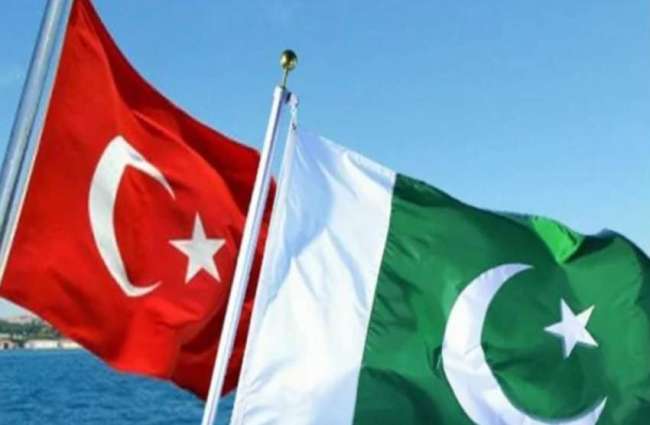Prime Minister Shehbaz Sharif has described it as a great milestone saying it will open new vistas of opportunities between the two countries.
ISLAMABAD: (UrduPoint/Pakistan Point News-August 12th, 2022) Pakistan and Turkiye on Friday signed Goods in Trade agreement to further cement their historic bilateral relations.
Minister for Commerce Syed Naveed Qamar and Turkiye's Minister of Trade Dr. Mehmet Mus signed the agreement at a ceremony in Islamabad on Friday.
It was witnessed by Prime Minister Shehbaz Sharif.
Speaking on the occasion, the Prime Minister described it as a great milestone saying it will open new vistas of opportunities between the two countries.
Shehbaz Sharif said given our unlimited potential and outstanding commitment, signing of this trade agreement will lead to achieving higher heights in terms of enhanced trade and investment between the two countries.
Alluding to the untiring effort put in by both sides for the realization of this agreement, Shehbaz Sharif stressed for implementation of this agreement in letter and spirit. He said this will show to the world that we mean business.
Minister of Trade for Turkiye, in his remarks, said both the countries enjoy deep rooted relations.
Mehmet Mus said he strongly believes this agreement will enhance bilateral trade and help achieve the target of five billion Dollars.
Minister for Commerce Syed Naveed Qamar said under the agreement both the countries have given concessions to each other in trade of goods. He said Turkiye has given concessions to Pakistan on 231 tariff lines whilst Pakistan has given concessions on 130 lines.
Naveed Qamar said this agreement is just the beginning, expressing the confidence this will lead us to a free trade agreement.




